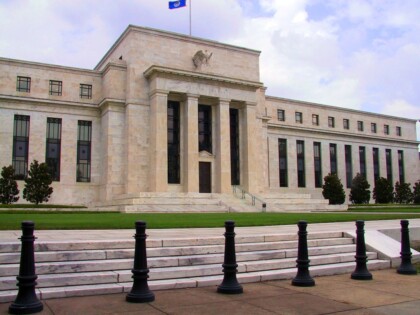
The Bank of England (BoE) released a new report Thursday highlighting what it exactly thinks about bitcoin and other peer-to-peer decentralized digital currencies. The report, like so many other previous central bank studies, suggests they are harmful and could pose a systemic risk.
According to the report, if bitcoin and similar virtual currencies gain widespread acceptance then they could very well heighten the risks of fraud and pose serious damage to the overall British economy. Furthermore, the BoE presented the case that the finite supply of bitcoins could produce an abundance of deflation if an economy were to adopt a cryptocurrency.
However, the BoE warned that the adoption rate of bitcoin may be limited, citing the possibility of growing transaction costs and volatile exchange rates. The UK central bank still believes the fixed supply is the primary deterrent to bitcoin arguing that the money supply can’t adapt to certain market demands, such as holiday seasons, technological advancement or recessions.
The bitcoin community views the paucity of monetary expansion as a positive because it refrains the government from creating money out of thin air to achieve political, military or economic objectives – the BoE produced 375 billion pounds of currency in a three-year time span in order to acquire government bonds and to incite economic stimulus.
There are an estimated 13 million bitcoins in circulation with a cap of just 21 million, which means that no more bitcoins can be generated after the digital currency meets that threshold.
With that being said, the central bank doesn’t believe bitcoin poses any significant harm to the British financial system. It isn’t concerned because fewer than 20,000 Britons maintained substantial digital holdings with approximately 300 transactions per day across the country.
Nevertheless, it did notice the innovation in bitcoin’s technology, particularly its decentralized payments system and public ledger, averring that the ladder could fundamentally alter the way payment systems work and proves that digital records can be securely stored without any central authority.
“The key innovation of digital currencies is the ‘distributed ledger’ technology that allows a payment system to operate in an entirely decentralized way, with no intermediaries such as banks,” the BoE’s quarterly report stated. “It may be possible in the future — in theory, at least — for the existing infrastructure of the financial system to be gradually replaced by a variety of distributed systems.”
It added: “This development could allow any type of financial asset, for example shares in a company, to be recorded on a distributed ledger. Distributed ledger technology could also be applied to physical assets where no centralized register exists, such as gold or silver.”
At the time of this writing, bitcoin is trading at just under $475.







